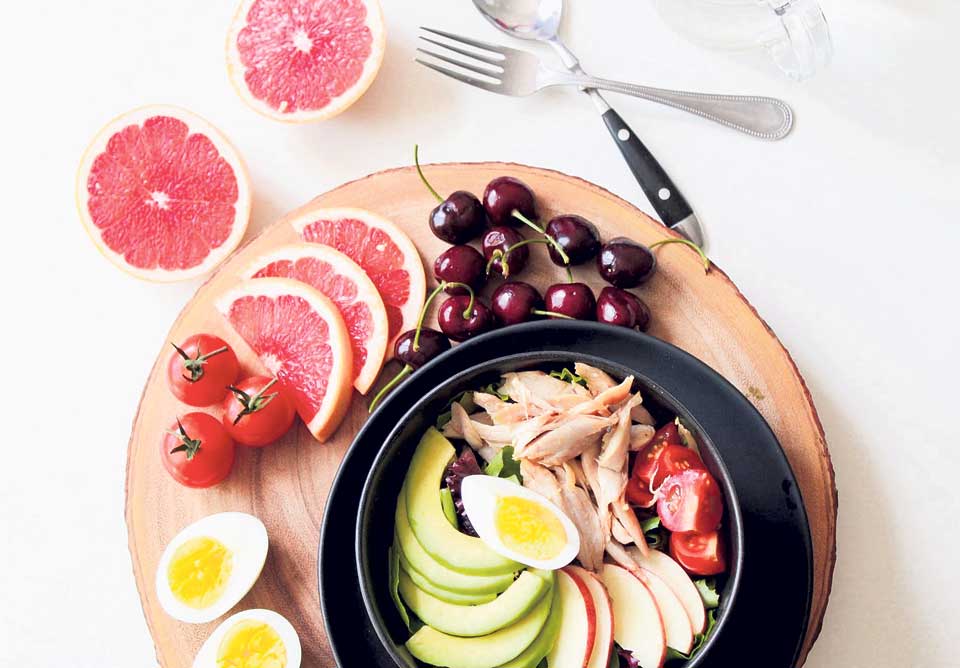
OR

If you dream about being able to eat whatever you want and not gain weight, you are not alone. However, with no miracle foods available to help you lose weight, filling your diet with the right foods may help you get to and maintain a healthy weight. There’s no such thing as a zero-calorie food but there are foods you can enjoy freely without having to worry about weight gain.
Boiled potatoes
We bet you didn’t see that coming. After all, who would think you could have potatoes and still lose weight. It’s true that due to their higher carb content many people avoid potatoes when trying to lose weight, but experts argue that they shouldn’t. Potatoes are loaded with vitamins, fiber, and other important nutrients. They also contain a certain type of starch called resistant starch that acts a lot like soluble fiber, helping you feel full. Cooling potatoes after they are cooked increases their resistant starch content. Studies show that cooling and reheating potatoes multiple times continues to increase their hunger-suppressing effect. In a study boiled potatoes were found to be the most satisfying and fried potato chips were found to be three times less filling.
Apples and citrus fruits
There have been many studies that indicate eating fruit is associated with lower calorie intake and can contribute to weight loss over time. Apples score very high on the satiety index because they contain pectin, a soluble fiber that slows digestion, helping you feel full for a longer time. Apples also contain over 85% water and that improvise satiety without adding calories. However, always opt for the actual fruit rather than its juice version because the latter isn’t particularly filling. Eating whole, solid apples may help you consume fewer calories and contribute to weight loss over time. Just like apples, citrus fruits are high in pectin, which can slow digestion and increase satiety. They also have high water content meaning they can fill you up while keeping your calorie intake very less.
Fish and eggs
Fish that are rich in omega-3 fatty acids may increase satiety in people who are overweight or obese. Fish are also loaded with high-quality protein, which is known to be very filling. A study found the effect of fish on satiety was significantly greater than that of chicken or other red meat. Eggs too are quite filling and several studies have found that people who ate eggs for breakfast were more satisfied and consumed fewer calories throughout the day than those who had bread or a bagel for breakfast. Most of the nutrients, including about half of an egg’s protein, are found in the yolk. Also, eggs are a complete protein, meaning they contain all nine essential amino acids.
Quinoa
While most of us might still have trouble with its pronunciation, quinoa (keen wah) is without a doubt a food we should get more comfortable with on the dinner table. Quinoa is high in complete protein, containing all the essential amino acids necessary for your dietary requirements. These are typically found in lean meats, poultry, fish, eggs and dairy. That means eating this plant-based food will give you some of the key benefits of eating meat. Take note, vegetarians and vegans. Quinoa is also a great source of fiber. Because of this generous amount of fiber, quinoa can help you lower your cholesterol, improve colon health, and increase satiety thus leaving you feeling fuller after eating it.
Yogurt
A 2011 study published in New England Journal of Medicine found those who ate more yogurt were less likely to gain weight. The researchers are not certain why yogurt may be associated with less weight gain, but they theorize it may have something to do with the friendly bacteria in the fermented dairy food. Yogurt is also rich in protein – a nutrient that helps you feel full after eating – along with bone-building calcium, vitamin D and magnesium. For overall good health, choose low-fat or nonfat yogurt varieties, without added sugar or artificial colors.
Cucumbers and avocado
A fruit that is mostly made up of water, cucumbers only contain 16 calories per serving. The seeds and skin contain most of the fruit’s nutritional value, so you are best off not peeling your cucumbers. The peel and seeds provide both fiber and a form of vitamin A known as beta-carotene, which is known to be good for your eyes. We recommend you slice a cucumber and pack a box of it for lunch every day and snack on it whenever you feel hungry. Similarly you can also snack on avocado when you are craving something more substantial. It’s low in carbs and packed with fiber and will keep you full for longer. Also, numerous studies have shown that eating avocado can improve heart disease risk factors like total, “bad” LDL and “good” HDL cholesterol, as well as blood triglycerides.
You May Like This

Mysterious disease killing dogs in Norway
HELSINKI, Sept 8: Norwegian authorities haven’t been able to detect the cause behind an unexplained disease that is estimated to... Read More...

Complete education, full health could double Nepal's GDP per capita: WB
KATHMANDU, June 7: Nepal has the potential to double its Gross Domestic Product (GDP) per capita in the long run if... Read More...

Smugglers’ go-downs near customs office
SIRAHA, March 16: On March 10, a team from the District Police Office (DPO), Siraha, arrested a truck with an... Read More...




Just In
- CM Kandel requests Finance Minister Pun to put Karnali province in priority in upcoming budget
- Australia reduces TR visa age limit and duration as it implements stricter regulations for foreign students
- Govt aims to surpass Rs 10 trillion GDP mark in next five years
- Govt appoints 77 Liaison Officers for mountain climbing management for spring season
- EC decides to permit public vehicles to operate freely on day of by-election
- Fugitive arrested after 26 years
- Indian Potash Ltd secures contract to bring 30,000 tons of urea within 107 days
- CAN adds four players to squad for T20 series against West Indies 'A'














Leave A Comment